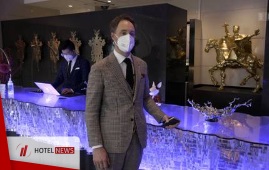
Technique 176 Maintain a Clutter-Free Office; All managers should keep their offices impeccably neat and orderly because doing so subconsciously signals the importance of cleanliness and attention to detail to associates. Technique 177 Keep a Log of Guest Requests; A culture must be fostered in which it is apparent to both guests and employees that management cares about guests and their requests. All guest requests should be followed up on. A good way to do this is to create a log (example below). Not only does this log help ensure follow-up, but it gives the manager an opportunity to review requests and see if there are consistencies so these issues do not continue to occur. Technique 178 Be Visible and Converse with Guests; Most guests appreciate meeting and conversing with managers. Managers should make it a point to either assist with check-ins or roam the lobby during peak check-in or check-out. Conversations with management help personalize the check-in/check-out process. Such interactions also often uncover leads for new business and set a good example for the associates regarding the importance of interactions. Technique 179 Display Attention to Detail by Cleaning the Floor; All managers should pick up lint and other small specks of debris as they move through the hotel’s public areas. While very small items on the floor are likely unnoticeable to most guests, picking them up signals attention to detail to associates. Technique 180 Invite a Consultant to Hold Guest Surprise Clinics with Associates; Hotel management should invite a consultant to the hotel to conduct a guest surprise clinic with associates and manag- ers. Facilitated by the consultant, the clinic would span two hours and would involve associates and managers collectively brainstorming free/inexpensive ways to surprise guests. Man- agement’s participation in the clinic would signal their com- mitment to the associates. The consultant could repeat the clinic in the am and pm to maximize associate and manager participation.
Create: Aug 25, 2020 Edit: Sep 29, 2020 Hotel Management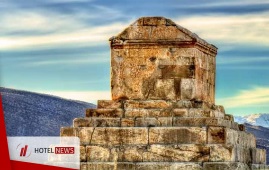
The La Vanguardia newspaper suggested destinations for the coronavirus outbreak and people who like to travel. Meanwhile, "George Sanchez" as a tourist from Spain who has traveled to five continents and 193 countries, has introduced Iran as one of the great choices for travel. He said: "Iran is a wonderful country with a history of thousands years and the most lovable and honest people in the world."
Create: Aug 22, 2020 Edit: Aug 26, 2020 International News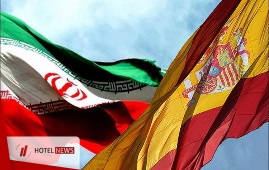
The Iranian embassy in Spain issued a statement; Normal flights of "Iran Air" on the route "Tehran - Madrid - Tehran" have been established. From September 2, 2020, the company's flights will be operated on Wednesdays every week according to the flight schedule. Iran Air ticket sales system will be activated on Sunday, August 16, 2020.
Create: Aug 20, 2020 Edit: Aug 20, 2020 International News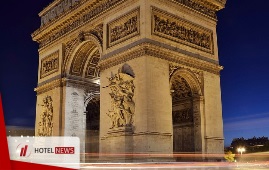
The French tourism industry has suffered $ 30 billion to $ 40 billion in damage following the spread of the coronavirus. Typically, about 9 million French people traveled to Spain, Italy and other countries these days. France, on the other hand, hosts about 17 million foreign tourists each year, who have been deprived of this benefit due to Coronavirus.
Create: Aug 11, 2020 Edit: Aug 13, 2020 International News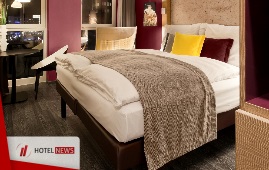
⚜️ As someone who spends well over 100 nights a year in hotels, I thought it was high time to put together a post with my thoughts about what every hotel room should offer (and what they definitely should not) in addition to all the basics like free WiFi, good personalized A/C and heating, and, you know, running water. Some of these are obvious – with the proliferation of lightweight laptops, smartphones, tablets and more, every hotel room should have an abundance of power outlets – while others might be more TPG-specific. However, these are things I’d like to see in every hotel room I book in the future, and feel free to share your own wish list below. 1. Power outlets galore . As I mentioned, we all travel with tons of gadgets these days, from computers and tablets to phones, cameras, music players and more, and the one thing they all have in common is that they must be charged. So it’s astonishing to me how many hotels still lack more than one or two outlets for guest use – you know, where lamps, phones and other odds and ends aren’t already plugged in. Not only that, but every hotel room should have bedside outlets. So many people tote their computers to bed to work while on the road for business, and so many use their Smartphones as alarm clocks (probably because hotel alarm clocks can be so byzantine to operate) that it just makes sense to have outlets near the bed that you can access without ripping the mattress away from the wall. Tons of lamps even come with outlets in their bases to make things easier. Hotels, take note, this should be a standard feature in your rooms. 2. A Nespresso machine . Call me a caffeine fiend, but I believe that every hotel room should have some sort of miniature coffee or espresso machine. Oftentimes, that’s all I want in the morning before grabbing something on the go from a lobby shop or a nearby cafe. I just want to be able to enjoy my first cup of the day in my room as I go through emails and my calendar without having to get dressed, leave the hotel and pick up coffee somewhere else. Or tea. Put in an electric kettle and some tea bags for the tea-drinkers out there. Who knows, maybe I’ll be feeling so productive I’ll order room service and up your revenue with a full-on breakfast if I feel like I’m getting a lot done. 3. A shower that doesn’t take advanced calculus to figure out how to work . Hotel showers can be glorious. Indoor showers, outdoor showers, showers with 12 showerheads, steam showers, rainfall showers…they’re all just wonderful. Except for one thing: so many of them are impossible to operate! Personally, I’m an old-fashioned, one knob for cold water and one for hot and you turn them to adjust the pressure and balance of temperature kind of guy. But so many hotel showers these days have temperature controls, pressure controls, controls to determine which showerhead is operating…I often find myself getting blasted with a rocket of cold water from one direction and volley of scalding drops from another these days. I mean, I love options as much as the next person, but can we please make these things easier to operate so I can get in, clean up and get out? And not to be too American about this, but would it be possible to include both Celsius and Fahrenheit temperatures on the knobs? I can do simple arithmetic on the fly with the best of them, but I don’t want to have to panic and try to figure out why 47 degrees is so hot. 4. Toothbrush and toothpaste . Call it a symptom of always being on the road, but I forget a toothbrush and toothpaste a lot when I travel and it would be such a nice surprise to find a mini travel kit in my hotel room when I arrive. If airlines can do it in amenity kits – and I’m not just talking business and first class ones here, but some airlines offer it in economy as well – then hotels can provide a mini oral hygiene set to guests. 5. Free water bottles . It’s midnight. You’re off a really long flight. You’re parched. All the stores are closed. All you want is a bottle of water, especially if you’re in a place where the water might not be potable for you. Any water will do – it doesn’t have to be Evian – but your only choices are in the minibar and they each cost $10. Why is that? Hotels need to start offering guests two free water bottles per day (that’s the other thing – even if you get a couple free bottles, it’s a one-time thing with a lot of hotels – once you drink them that’s it!). We would all appreciate it, and it’s such a simple provision. 6. A room service menu that doesn’t take 20 clicks on the TV screen to navigate and order from . This is another old-fashioned quirk of mine, but as much as I love new technology, sometimes just having a paper menu and calling down to room service is just so much easier than trying to learn to navigate a hotel’s “state of the art” television ordering system. If you’re going to put such a system in place, put an iPad in my room and let me order from there, which is so much easier. To be continue...
Create: Aug 9, 2020 Edit: Aug 11, 2020 Language Academy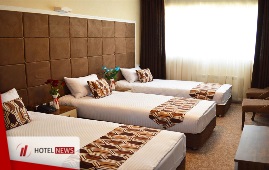
"Ali Rafiei" Deputy of Tourism of Tehran Province; By the order of the coronavirus National Headquarters, the swimming pools and jacuzzis of Tehran's three- to five-star hotels are closed. Hotel travelers are checked at the reception, after which their handbags and belongings are disinfected. When waiting in lobby, spacing is observed and breakfast is served to guests in a packed form.
Create: Aug 8, 2020 Edit: Aug 8, 2020 Regional News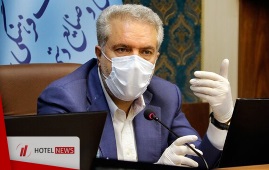
“Corona is a fact, but can the virus stop tourism? Certainly not. For us, the coronavirus is a new experience in dealing with crises that teaches tourism experts around the world how to deal with such a disaster, and thankfully governments are turning this into an opportunity for better planning,” Ali-Asghar Mounesan said, ISNA reported. He made the remarks in a video showcased on Tuesday evening during a prize-giving ceremony in which a select of tourism businesses, tour operators, investors, and hoteliers were honored. “Tourism experts will certainly find a way to deal with this great crisis. As if the measures so far been taken in Iran and all over the world show that we will surely succeed [to make a big rebound] through proper smart planning.” Addressing the attendees to the ceremony, the minister explained; “Investments and the launch of new projects in the tourism sector have been increased dramatically underway across the country. Of these, about 600 are hotel-related projects that show a very promising future, conveying a message that investors see profitable prospects for Iran’s tourism.” Elsewhere in remarks, the official said “We are not saying that tourism should [merely] replace oil [revenues], but tourism can become first [sector of] economy in the country replacing revenues [currently being come from [the export of] mineral and raw resources.” “Tourism can create an easy way to earn and create employment by tapping into the existing historical and natural capacities of the country.” Mounesan has long been attaching importance to tourism as a source of revenue, which could substitute petro-dollars. Back in 2017, he said: “Every single foreign tourist visiting Iran spends an average of $1,200, bringing in income as much as exporting 30 barrels of oil.” Referring to the pandemic and its impacts on the traveling sector, he said: “All the economists in the world have predicted [dramatic] changes and developments for many once-prosperous sectors….. However, the technology is advancing, and smart solutions… will certainly bring changes in the world's economic sectors.” In June, the United Nations World Tourism Organization praised efforts made by Iran’s tourism ministry to manage the travel industry during the coronavirus pandemic. UNWTO Secretary-General Zurab Pololikashvili said in a letter to Mounesan that the country's measures have truly earned plaudits to mitigate the impact on tourism. “A series of measures that the Ministry of Cultural Heritage, Tourism and Handicrafts of Iran has taken, in accordance with the guidelines and recommendations of UNWTO, has truly earned plaudits as an effective practice to mitigate the impact on tourism,” the letter reads. Some experts believe that the coronavirus pandemic may turn tours and travels into luxury items as observing health protocols will raise the cost of travel in the country. Mohammad Ali Vaqefi, the vice president of the Iranian Tour Operators Association, warned earlier in June that with the continuation of the coronavirus outbreak, tourists may prefer individual travel rather than tours, adding that they may also choose to go on a trip by their vehicles and stay in tents or in the nature instead of hotels. In the global scene, part of the new travel puzzle is the jet-set mindset focusing on tough hygiene care and social distancing as cardinal guidelines for slowing the spread of the virus. So the average expenditure will be raised for a typical traveler particularly inbound passengers so lesser ones can afford to buy privacy and space and safer travel amenities. Meanwhile, deputy tourism minister Vali Teymouri, has said the tourism industry of Iran will get back on the right track sooner than expected thanks to measures taken to tackle the spread of coronavirus. “I believe that tourism industry of the country will get back on the right track far sooner than generally expected thanks to the measures taken to deal with the spread of coronavirus in tourist destinations, hotels, stopovers, and all the centers which are affiliated with the Ministry of Cultural Heritage, Tourism and Handicrafts,” Teymouri said. Iran expects to reap a bonanza from its numerous tourist spots such as bazaars, museums, mosques, bridges, bathhouses, madrasas, mausoleums, churches, towers, and mansions, of which 24 being inscribed on the UNESCO World Heritage list. Under the 2025 Tourism Vision Plan, it aims to increase the number of tourist arrivals from 4.8 million in 2014 to 20 million in 2025. The latest available data show eight million tourists visited the Islamic Republic during the first ten months of the past Iranian calendar year (started March 21, 2019).
Create: Aug 5, 2020 Edit: Aug 6, 2020 Regional News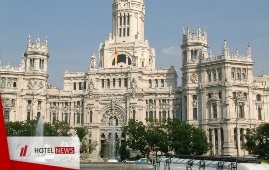
According to published statistics, the number of foreign tourists who came to Spain in June decreased by 98% compared to the same month last year. On the other hand, the number of foreign tourists in Spain during the first six months of this year was 72% less than in the first half of last year.
Create: Aug 4, 2020 Edit: Aug 13, 2020 International News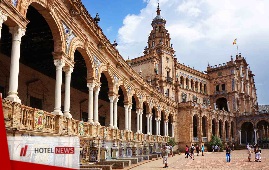
Tourism crisis in Spain due to travel restrictions Following concerns about the spread of the coronavirus, Britain and several other European countries have imposed new travel restrictions on Spain. The British government announced two days ago that from now on all travelers returning to the UK from Spain must remain in quarantine for 14 days. The governments of France, Germany, Ireland, Norway, the Netherlands and Poland have each imposed restrictions on their citizens' travel to Spain and are currently refraining from traveling to this country.
Create: Jul 28, 2020 Edit: Aug 3, 2020 International News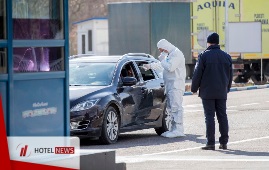
Despite the start of tourism in some southern European countries, the number of tourists in Spain, Italy and Greece has been much lower than expected. Hotel bookings in Italy are very low despite government incentives, there are no large numbers of tourists in the Spanish Canary Islands, and the Greek islands comparing to half of their regular tourist capacity. According to statistics, tourists and citizens of European countries prefer to travel in their own country to foreign trips.
Create: Jul 20, 2020 Edit: Jul 25, 2020 International News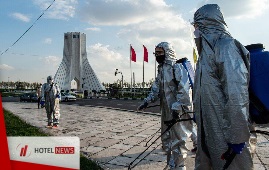
The head of the Tourism and Natural Heritage Group of the Cultural Heritage Research Institute said at a tourism meeting in the Coronavirus era; Coronavirus outbreak has affected tourism more than any other activity. An industry that has seen the highest rate of growth over the years. Two events, such as the discovery of the coronavirus vaccine or its spontaneous eradication, such as the Spanish flu, will surely bring tourism back to its heyday and even a huge explosion. The most important way to compensate for the damage done to the tourism industry is through government support.
Create: Jul 15, 2020 Edit: Jul 15, 2020 Regional News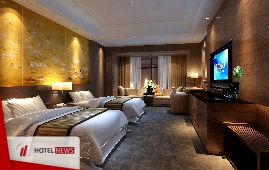
Technique 139 Ask About Travel Experiences; Offering redress for problems not caused by the hotel can be a key driver of guest satisfaction. For example, if a guest mentions travel-related problems experienced before arrival, the hotel should offer an amenity or upgrade as an expres- sion of empathy and comfort. Front desk associates should be encouraged to ask guests how their trips were because doing so increases the probability of finding out about travel-related frustrations. Technique 140 Thank Guests for Complaining; All associates should be trained to thank guests when they voice valid complaints. Such a thank you encourage guests to communicate problems directly with the provider as opposed to posting complaints on social media forums. Thanking the guest for voicing the complaint also signals that the problem is less likely reoccur in the future. Technique 141 Ask What Would Fix the Problem; If a guest voices a valid complaint, after listening, empa- thizing, thanking the guest, and apologizing, the hotel asso- ciate should ask the guest what the hotel can do to fix the problem. Most guests will ask for very little which presents the opportunity to deliver more than what was asked—spawning guest delight. Technique 142 Organize Recharging Cords; Recharging cords for mobile electronics are perhaps the most commonly left items in the rooms; thus, most hotels have excess in lost and found since many guests never call for them. Therefore, the hotel should have a selection already identified by phone/computer type. When a guest asks where to buy one, or if they ask to borrow one from the hotel, they will be readily available for them to use with no hassle. Technique 143 Be Ready for Clean-Up; The front desk agent should always have immediate access to both cloth towels and paper towels and should be on the look-out for guests in need of them. They can be offered if a guest comes in from the rain, if an infant spits up, etc. Technique 144 Have Shower Chairs and Bath Mats Readily Available; While all hotels have handicap rooms, at times, an elderly person or a person with an ailment may want “more protection” while in the shower. A shower chair and rubber bath mats are good to have on hand. Technique 145 Offer Hot Chocolate During Inclement Weather; Whether driving or flying, guests’ stress levels increase significantly when they must attempt to travel in snow or ice. Hot chocolate should be available in the lobby in such circumstances. Technique 146 Let Guests Keep Umbrellas; The hotel should have an abundance of umbrellas at the front desk for guests to use when needed. If a guest says s/he will drive the car around and return it later, let them keep the umbrella (they can be purchased inexpensively at a dollar store). Technique 147 Organize Unclaimed Items Suitable for Borrowing; Many times clothing, belts, etc. are left in lost and found. If the items remain unclaimed, they can be used for guests to borrow if forgotten to pack. A closet, or part of a closet, can be dedicated to these items. Technique 148 Be Informed About Guest Assistance Information; Guests continue to have more special needs as it relates to medical and dietary. Ensure that desk and restaurant staffs have the basic knowledge to assist the guests with these concerns. The key is where to direct them so they can get the information they need, such as what restaurant serves the needed food; pharmacy information; dentist information; or medical emergency information. To have information ahead of time will help when the need arises so the situation can be dealt with immediately. Technique 149 Have a List of Languages Spoken by Staff; Many hotel personnel speak multiple languages. Have a list of any employee that speaks different languages. When there is a guest who needs additional interpretation it will be helpful to know who the employees are that can help them. With foreign travel getting stronger, this is very valuable to the hotel. Technique 150 Have a System for Handling Verbal Communication Barriers; If an associate does not speak English, then s/he should carry cards to give to the guest so when they ask a question, they can explain this and direct them to someone who can help immediately. The staff member can also have a pen and paper readily available to help facilitate communication; be sure there is a system in place for this sort of communication. To ignore the guest is a failure in guest service. Technique 151 Recognize Employees for Exceptional Service Failure Recovery Efforts; If an associate goes the extra-mile to solve a guest’s prob- lem, take a digital photo of the associate and write a few sen- tence narrative about what s/he did in the situation. Use the narrative and photo to make a small poster that can be hung in the employee break room.
Create: Jul 5, 2020 Edit: Aug 13, 2020 Hotel Management
